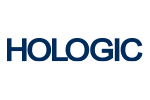A measure to curb surprise medical bills was signed into law on December. 27 as part of the coronavirus relief and economic stimulus bill. Starting in 2022, patients won’t receive surprise bills for emergency care or for nonemergency care provided at an in-network hospital when they are unknowingly cared for by an out-of-network physician, laboratory or other healthcare provider. Patients will only be responsible for the deductible and copayment amounts under the in-network terms of their insurance plans. For the uninsured, the bill requires the secretary of the Department of Health and Human Services (HHS) to create a provider-patient dispute resolution process. ASCP strongly supports holding patients harmless in billing disputes between providers and payers.
In addition, the new law allows patients who wish to seek out-of-network care to consent to a cost estimate provided by the clinician 72 hours prior to treatment. This is allowable only in nonemergency situations and prohibits many types of physicians (pathologists, radiologists, anesthesiologists, laboratories, etc.) from the practice.
Further, the new law carves out some middle ground in terms of determining payment amounts. Insurers and providers have 30 days to negotiate the payment of out-of-network bills. If that fails, the claim then goes through an independent dispute resolution (IDR) process, which is strongly supported by ASCP. (Click here for details on recent ASCP advocacy on surprise billing.) The new law does not specify a benchmark payment, but bars the use of “billed charges” during arbitration as these charges are generally far higher than negotiated rates.
Additionally, in a last-minute change favoring hospitals and physicians, Medicare and Medicaid rates were also barred from consideration during arbitration. This is expected to favor clinicians as government payments are often much lower than negotiated insurance rates. The legislation also states that negotiators can consider the median in-network prices paid by each insurer for the services in dispute. Other factors negotiators may consider include whether the provider tried to join the insurers’ network, and how sick the patient was compared to others.
ASCP has long advocated for a fair solution to surprise billing that not only protects patients, but also reimburses pathologists and other physicians in a fair and reasonable way. (Click here for ASCP’s policy statement on surprise billing.) For example, because of ASCP’s reputation as a patient-centric organization, the HHS sought out ASCP’s counsel to outline pathologists’ and patients’ perspectives on this issue. While this legislation is not perfect (no law is), it serves as a compromise where patients ultimately win. It remains to be seen how federal legislation will affect state laws, with some policy experts anticipating that states will ultimately defer to federal law. (More than 30 states have enacted some type of surprise billing legislation, but only 17 are considered comprehensive.
To learn more about ePolicy News and access past newsletters and articles, click
here.
For more information regarding ASCP's advocacy initiatives and policy positions, please contact ASCP's Center for Public Policy at (202) 408-1110.

ASCP ePolicy News is supported by an unrestricted grant from Hologic.
